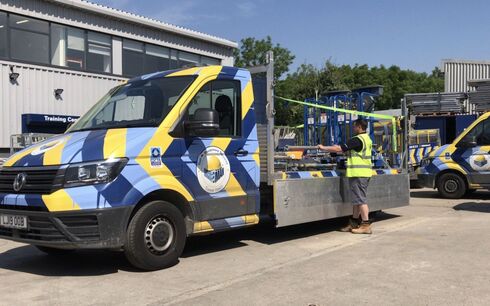
Zones within Zones
21 October 2021

Driving in London is certainly challenging. It’s not just the density of traffic, it’s also the cost.
But first, a bit of history. The London Congestion Charge dates back to 2003. Currently, non-exempt cars and motor vehicles pay £15 per day to enter the designated area which covers an inner city area bounded roughly by Marylebone, Finsbury, The City, Tower Bridge, Lambeth and Green Park.
It used to be £10 daily but in the wake of the pandemic it was increased to £15 to help offset a deficit Transport for London’s (TfL) faced with so many commuters working from home and not travelling by Tube.
Back in 2008 the capital also introduced a Low Emission Zone covering most of Greater London, to encourage the adoption of cleaner engines. It applied initially to heavier commercially operated diesel vehicles but was extended in 2012 to cover vans, minibuses, utility vehicles and pick-ups.
More followed. In April 2019 an additional Ultra Low Emission Zone (ULEZ) was launched to charge the most polluting vehicles. This initially covered the original congestion charge area, with only electric and very low emission vehicles exempted.
However, the ULEZ will be expanded to cover the significant area bounded by the North and South Circular Road from next Monday, 25 October. An estimated one million vehicles a day drive in this expanded zone, but 87% of them are believed to comply already with emission regulations. Nevertheless, 140,000 vehicles will pay a further £12.50 to enter the ULEZ unless they are replaced.
So what’s the likely impact on businesses like tool hire companies?
Neil Graham is managing director of The Hireman which has three depots serving the capital. He has been monitoring all the developments with interest.
“The ULEZ expansion will affect all our depots (in Canning Town, Wembley and Croydon) because their vehicles will be moving into or around the area regularly,” he tells me.
“You will be exempt from the new charge if you have a compliant vehicle, such as those with Euro 6 diesel or Euro 4 petrol engines, or electric ones. Like many other businesses over the last year or so we have been trying to replace our remaining older vehicles. But supply has simply not kept up with demand.
“We were originally expecting 16 new vans and pickups – about one third of our delivery fleet – by the end of September, before the ULEZ expansion on 25 October. But the supply problems in the automotive sector means we won’t see them until the New Year.
“In normal times you would allow around six months for vehicles to arrive and then be finished by the bodybuilders. We placed our orders more than a year ago and thought that 12 months, even in Covid times, would be ample. But the dealer now can’t give us an exact delivery date.”
Electric delivery truck options are expensive at two to three times the price, and have limited range capabilities.
“We’ll just need to plan so that the non-compliant vehicles are used, for example, for deliveries and collections outside the capital where possible,” said Neil. “We sometimes supply customers as far afield as the south coast, Norfolk and Birmingham.
“And it’s not a case of only incurring the cost on entering the Zone. Even if your home or business is located in the area – and Canning Town is in the ULEZ – you only have to move your car or truck and you’re charged, unless you have an exempt vehicle.
“In theory we could pay £12.50 a day for the 16 vehicles operating in the ULEZ five days a week, making £1,000 extra to run the fleet.
“We have a tracking system on vehicles so we get alerts when they are in a Zone. However, we have registered them with TfL so as soon as they are logged by the CCTV cameras we are charged automatically.” (This differs from how the Clean Air Zone in Bath works, mentioned earlier on the blog, where the onus is squarely on drivers to realise they are in the Zone and must pay.)
“The various Zone charges are shown on a bill we receive at the end of each month. It’s eye-watering,” says Neil.
“Overall, it’s not been easy in the middle of a pandemic. We want to go green but can’t source the solutions. It’s very frustrating. I realise there are strict environmental goals that we all have to hit but perhaps businesses might have been given a bit more time in the circumstances.”
● For more Site-Eco stories click here. And to subscribe for regular updates click here.

